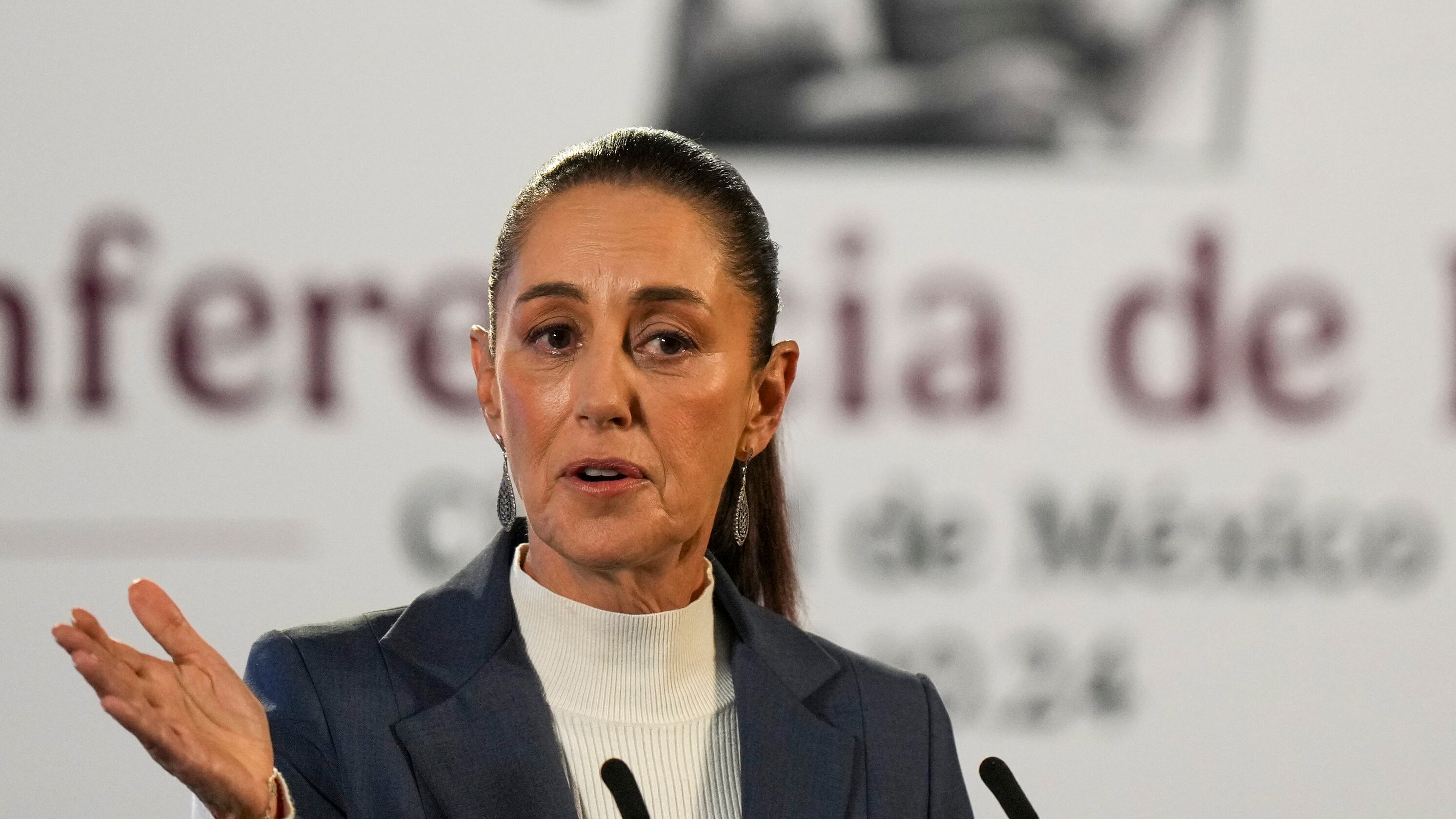MEXICO CITY (AP) — Mexican leader Claudia Sheinbaum expressed on Tuesday her willingness to engage in dialogue with President-elect Donald Trump, but warned that if the new U.S. government imposes tariffs on Mexico, her administration will respond with a similar measure.
This was stated by Sheinbaum in a letter she will send to Trump on Tuesday, in which she expressed that "the migration phenomenon, nor the drug consumption in the United States, will not be addressed with threats or tariffs", but she warned that "one tariff will lead to another in response, and so on until we put common companies at risk."
PUBLICIDAD
"Why impose a tax that puts them at risk?" asked the president in the letter when discussing the consequences that an increase in tariffs could have for American automakers such as General Motors and Ford Motors Company - which have plants in Mexico - and said that it is "unacceptable and would cause inflation and job losses in the United States and Mexico."
Sheinbaum advocated for dialogue and "cooperation and mutual understanding" to strengthen North America economically and ensure that the region remains more competitive against other economic blocs.
He expanded on that idea in his morning conference where he announced that in addition to the letter, they will seek a phone conversation with Trump to arrange a meeting as soon as possible.
"We must put everything on the table. But if we focus on coordination, collaboration to be able to address in a profound way the migration phenomenon, the problem of the humanitarian crisis they have in the United States due to fentanyl consumption, then it will be addressed comprehensively," stated the president.
In a series of posts on his Truth Social social media platform, Trump said on Monday that he would impose a 25% tax on all products entering the country from Canada and Mexico and an additional 10% tariff on goods from China.
The president-elect stated that the new tariffs would remain in place "until we stop this invasion of drugs, particularly fentanyl, and all illegal foreigners in our country."
It is not clear whether Trump will actually carry out the threats or if he is using them as a negotiation tactic before taking office in January.
When refuting the arguments put forward by Trump, Sheinbaum stated that according to figures from the U.S. Customs and Border Protection (CBP), encounters with migrants at the U.S. southern border have decreased by 75% from December 2023 to November of this year. She also mentioned that half of the foreigners arriving at that border did so through a legally granted appointment under the CBP One program established by the Democratic administration of Joe Biden.
During her morning conference, the Mexican president highlighted the efforts that Mexico has made to address the migration issue and expressed that "perhaps President Trump is not aware of this."
Sheinbaum also highlighted the actions that Mexican authorities have taken to combat fentanyl trafficking and pointed out that synthetic drugs enter the United States, Canada, and Mexico "illegally from Asian countries," emphasizing the need for international collaboration.
Likewise, he reiterated Mexico's complaints about the illegal trafficking of weapons coming from the United States, which he estimated at 70%, and the impact that this generates in the escalation of violence. "The deaths caused by crime to meet the demand for drugs in your country unfortunately fall on us," he recalled.
If the threat made by the Republican Trump were to materialize, the impact would be felt especially in the United States with a drastic increase in prices of various products, from gasoline and automobiles to agricultural products. But Mexico would not escape the economic aftermath.
The first effects were felt on Tuesday in the foreign exchange market. The Mexican currency started the day with a depreciation of 1.08% against the dollar, which brought the exchange rate to around 20.52 pesos per dollar.
Cross-border trade between Mexico and the United States is currently at its best, with transactions exceeding 800 billion dollars annually.
